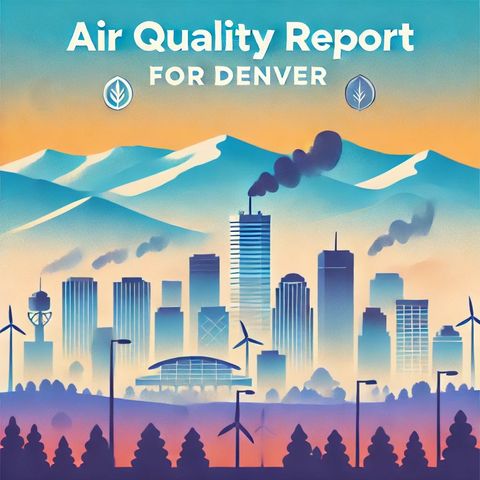21 NOV. 2024 · As of today, Denver is experiencing fluctuating air quality levels, a phenomenon that has become increasingly common due to a combination of local and regional factors. The Air Quality Index, or AQI, is the standard metric used to quantify the air quality in terms that are easy to understand, encompassing pollutants such as ozone, particulate matter (PM), carbon monoxide, sulfur dioxide, and nitrogen dioxide.
For today, the AQI for Denver is primarily influenced by elevated levels of ground-level ozone and particulate matter. Ground-level ozone, often referred to as "bad" ozone, forms when pollutants emitted by cars, power plants, industrial boilers, refineries, chemical plants, and other sources chemically react in the presence of sunlight. In urban areas like Denver, warm and sunny weather can exacerbate ozone formation. As of the latest readings, the ozone index is moderate, which may cause concern especially for individuals with respiratory conditions or those engaging in outdoor activities.
Particulate matter, particularly PM2.5, which consists of tiny particles or droplets in the air that are two and one-half microns or less in width, is another contributor to air quality issues. High levels of PM2.5 can pose health risks, as these particles can penetrate deeply into the lungs and even enter the bloodstream. Sources of PM2.5 in Denver include vehicle emissions, industrial activities, and even natural events such as wildfires, which have become more frequent and intense in recent years due to climate change.
The combination of these pollutants means that Denverites might experience variable air quality throughout the day. Morning commuters might find air quality relatively better due to cooler temperatures and less sunlight-driven chemical reactions, while afternoons can see spikes in ozone levels. Throughout the day, urban heat can cause inversions that trap pollutants, bringing about times when the air quality could dip to levels that are unhealthy for sensitive groups including children, the elderly, and those with pre-existing health conditions.
Denver's location in the Front Range urban corridor often results in complex meteorological conditions. The region's unique topography can lead to inversions and holds pollutants close to the surface, impacting air quality. Local agencies continue to provide guidelines and recommendations such as limiting prolonged outdoor exertion, especially for sensitive groups, during periods of poor air quality.
Efforts are ongoing to improve Denver's air quality through various measures including stricter emission standards, promoting public transportation, and encouraging the use of cleaner energy sources. The city's residents are also increasingly involved in community-driven initiatives to maintain and improve the environmental health of their surroundings.
As Denver continues to grow and evolve, sustainable practices and policies will be crucial in ensuring the health of its air and, by extension, its residents. The awareness and proactive management of air quality remain key elements in safeguarding the well-being of the community.


